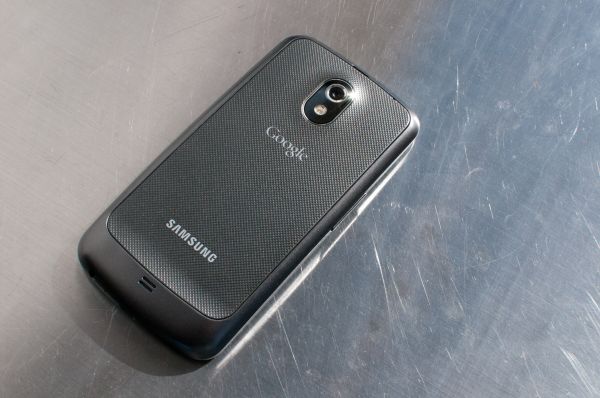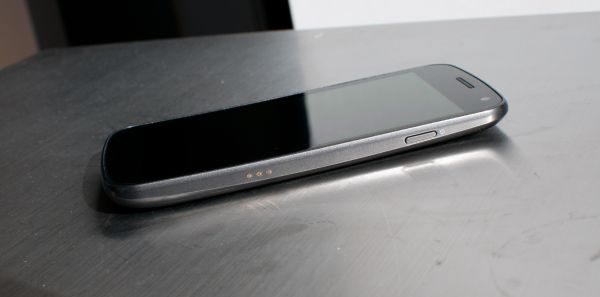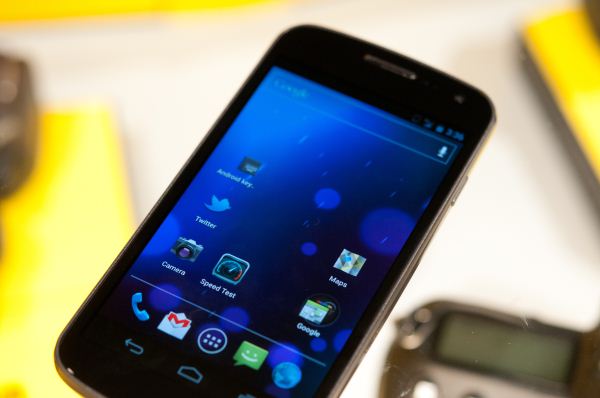Samsung Galaxy Nexus & Ice Cream Sandwich Review
by Brian Klug & Anand Lal Shimpi on January 18, 2012 1:34 PM ESTFor Google, one of the major points of Nexus has always been to provide a stable piece of reference hardware for it to cater a major OS release to. Each device has married a major revision of the Android platform to the latest stable hardware. That isn't to say that the hardware choices are always bleeding edge, but rather modern and logical next steps for the platform. I often read that Android as a platform is plagued by rapid hardware releases and product cycles that leave endless variants of the same hardware for each carrier, and that preloads and skins fragment the experience. While there's some truth to this, it isn't necessarily Google's fault - the software is open source after all. In the case of Android 4.0, this release is about consolidating the tablet and smartphone form factors under one version of Android and negating some talk of the platform's fragmentation.
For Google, each Nexus launch is analogous to Apple's iPhone launch - it's the one time that Google gets to dictate exactly what hardware is coming out, and exactly what software makes it onto that hardware. It is no less significant for Google's platform, either. Thus far there's been one Nexus device released per year, and that hardware gets updates from Google directly - at least until the hardware precludes support.
While the Verizon CDMA/LTE Galaxy Nexus is a bit unique, there's no indication thus far about how long carrier approval will take. The Galaxy Nexus line itself is very interesting - on one side, we have the GSM/UMTS device with pentaband WCDMA support that finally fully detaches the hardware from needing carrier specific versions for each region or carrier on GSM/UMTS networks. This is a dramatic step toward reducing carrier power, turning the networks into dumb pipes, and changing the way US customers shop for devices - exactly what the point was when Google launched the Nexus One. On the other, we have the Verizon CDMA/LTE version which thus far marks the furthest carrier incursion into otherwise untouched Nexus-land.
At this point, the Galaxy Nexus is awesome because of its marriage of Android 4.0 and a number of unique hardware features. I'd go so far to say that the Galaxy Nexus is without question the current best Android device, and with the improvements made in Android 4.0, first party applications and browser are now nearly as smooth as their counterparts in iOS. If OS smoothness was the thing holding you back from Android, 4.0 does a lot to change that. The Galaxy Nexus display is excellent, pentaband WCDMA on the GSM/UMTS model is exclusive only to that device, battery life isn't half bad, instant capture works well, and it has Samsung's newest LTE modem. The downsides are pretty much obvious - the camera is far from awesome, the GSM/UMTS variant has a quiet speakerphone, Samsung is using OMAP4460 at 80% of its maximum clocks, and some Galaxy Nexus displays have more more inhomogeneities than others. There's also the matter of newer 32 and 28nm SoCs that are just over the horizon.
The Galaxy Nexus is so important again because it's the only time Google gets to dictate everything - the hardware, the software, and update timing. There's also the element of freedom, with unlockable hardware out of the box. I find myself wishing that Google had begun its adventure sticking it to the carriers with pentaband WCDMA support like this phone finally has, as that would've been much more successful than the practice of releasing a few different Nexus variants with different bands.
As far as Ice Cream Sandwich is concerned, it really is Android perfected. Everything is smoother, faster and nearly all of our issues with the OS have been addressed. ICS brings Android into 2012 and gives Google a great platform to begin to introduce new features going forward. Android is now very close to UI performance parity with iOS, which eliminates a major tradeoff you had to make in the past. If you were hoping for ICS to be iOS with a Google logo on it, you'll be sorely disappointed. However if you're a fan of Android and just wished it were smoother and more polished, Ice Cream Sandwich is what you've been waiting for.













185 Comments
View All Comments
zorxd - Wednesday, January 18, 2012 - link
The Skyrocket is also 1.5 GHz so the CPU helps.sprockkets - Wednesday, January 18, 2012 - link
There's a very small bit of lag on the bottom buttons. Quite frankly I think the delay is just the OS making sure you are holding down the home button for the task manager instead of just going home.Using ICS on a HTC Sensation. The status of it is beta - HTC still has work to do on it to make it as good as the 2.3.4 ROM.
webmastir - Wednesday, January 18, 2012 - link
Love my Galaxy Nexus. Best phone I've ever had & have no DOUBT in my mind that I'll be happy until my next Phone.Thanks Google!
OCedHrt - Wednesday, January 18, 2012 - link
Since I can't get the HTC keyboard working on AOSP ICS...I have to make this comment: I prefer the HTC keyboard much much more than even the ICS keyboard. It is ridiculously easy to mistype on the ICS keyboard.vithee05 - Wednesday, January 18, 2012 - link
Can you guys tell me how the accessibility is in ICS? It's supposed to be better for those of us who are visually impaired. I am debating between the galaxy nexus, the razr, or waiting on the droid 4 to get the keyboard. Do you think the accessibility is good enough to not need the keyboard?secretmanofagent - Friday, January 20, 2012 - link
I have a Droid RAZR (2.3.5) in my hands, and looking at the accessibility settings, it's pretty paltry. If you're considering a RAZR or Droid 4, I would wait until ICS shows for it.tipoo - Wednesday, January 18, 2012 - link
I agree that its worlds better than the Gingerbread browser, but scrolling on image heavy pages still lags a bit compared to Opera Mobile (not to be confused with Mini). AFAIK Opera Mobile uses GPU acceleration as well and seems to do it better than Google at their own game. Just an idea, but a comparison of all the Android browsers would be nice :)tipoo - Wednesday, January 18, 2012 - link
*on my Nexus S. Maybe on newer/faster phones it would be a toss up.bjacobson - Wednesday, January 18, 2012 - link
Really? interesting. Opera seems to get everything right. Their browser is blazing fast for Netbooks too. Everything in the UI and foreground tab gets processing priority, everything else (like background tabs rendering) gets delayed. It's a flawless design, much more responsive than Chrome when loading multiple tabs.tipoo - Thursday, January 19, 2012 - link
Yeah, and as far as I know its the only browser that dynamically adjusts its memory use depending on how much your using for other tasks, so it scales up or down to more powerful or less powerful systems, another reason its good on netbooks. It has addons now too which are rapidly gaining traction. If it wasn't for some compatibility niggles I would say its hands down the best browser, but I keep Chrome around for the 1 in 1000 site it might break. Oddly enough the Mobile version seems to be the opposite, its the only mobile browser that I've never seen break a site.